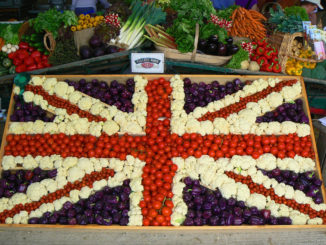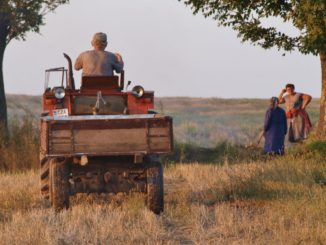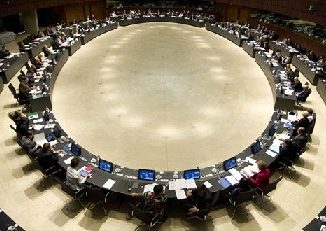BirdLife Europe & Central Asia have made proposals to substantially overhaul the CAP, or Common Agricultural Policy. The NGO proposes four policy instruments: a Transition instrument for Sustainable Farming; a Sustainable Food instrument; a Nature and Biodiversity instrument and a “Space for Nature” instrument. A polluter pays principle is suggested to fund these instruments. Also proposed is the end of the two pillar system, parity for environmental legislators, a specific take on farmer payments – seen more as investments based on performance/results, with no guaranteed basic payments, and a transition focused interpretation of risk management.
The organisation’s paper – Towards a new European Food and Land-Use Policy – is built around four core areas: fairness, environment, health, and what it describes as being “globally responsible” – dealing with climate change and sustainable development.
The four core elements of the Birdlife CAP proposal are:
- Fair – for farmers and rural communities.
- Environmentally Sustainable – for clean air and water, healthy soil, and thriving plant and animal life.
- Healthy – for good food and the well-being of all people.
- Globally Responsible – for the planet’s climate and sustainable development around the world.
Policy Instruments
For BirdLife Europe & Central Asia, policy should, via investment and a contractual approach, enable transition of the agri-food system. “The main focus of the next policy should be on transition with a significant amount spent on one off temporary investments…The reform should apply the “contractual” approach to all funding between farmers, land managers and society. Any new payments system should build upon existing programmatic approaches to payments…”
Four proposed policy instruments, as described by BirdLife Europe & Central Asia, are as follows:
Transition instrument for Sustainable Farming – a temporary investment fund (limited to two financial periods of the EU) that should help farms switch to a high-quality, nature-and-animal-friendly and profitable economic model and invest in healthy, economically diverse rural areas. It should support the long term goal to make farming sustainable and independent from public subsidies.
Sustainable Food instrument – a set of investments to build up sustainable value chains, reduce food waste and increase the demand for healthy and environmentally sound food at fair prices.
Nature and Biodiversity instrument – the central EU fund for financing about 75% of the costs of implementation of the EU nature legislation (e.g. Natura 2000) and other key biodiversity action in Member States. In particular, the fund should reward specific biodiversity action undertaken by farmers, foresters and other land users with an earmarked minimum budget of 15 billion EUR per annum. The fund should be programmed under the lead of environmental authorities.
“Space for Nature” instrument – area-based entry level payment scheme, accessible for the vast majority of farmers, which dedicates a varying percentage of each farm to (strictly non-productive) natural elements, thereby fostering biodiversity and ecosystem services across the agricultural landscape. The scheme must be free of any exemptions, equivalences or weighting factors. These instruments should be complemented by a system to raise revenue from the polluters.
Environmental legislators are to be given parity with other legislators, where environmental topics or areas are under consideration. The NGO also argues for policy coherence, the end of the two pillar system, and for CAP to “manage risks with tools that support farm diversification and knowledge transfer, rather than publicly financed “risk management” instruments for price volatility.”
Risk Management
“BirdLife Europe & Central Asia and its EU partners oppose the introduction of publicly financed risk management instruments that insure against price volatility. BirdLife and its EU partners believe that the use of risk management tools for price volatility is counterproductive in many ways. It provides a further incentive for unsustainable intensification and specialisation. It also does not contribute to addressing any environmental challenges, and may very likely make them even worse, potentially creating the “moral hazard” of unsustainable practices. Furthermore, it will divert CAP funds away from land managers instead of being used to support land managers in the transition to sustainable land management by incentivising important biodiversity measures. The principle of risk management
should be promoted through farm diversification and knowledge transfer, rather than complex and costly financial instruments.”
Two Pillars
“The current Rural Development “pillar” still retains many environmentally harmful measures and must be reformed to facilitate the transition to a sustainable food and farming system. Many Member States are using Pillar II funds to finance measures that further intensify production beyond ecological boundaries…There is also considerable
underfunding for the positive measures within Rural Development programmes…replacing the positive aspects of the Rural Development pillar with other tools, such as a transition instrument and a nature financing instrument. In the long term, regional development in rural areas could be addressed by the EU’s regional policy.”
Transition Instrument for Sustainable Farming
For this instrument, farmers have “ambitious legal obligations” to fulfill, to justify “an investment stream” which would “allow farmers to access the required finances to change their farm structure, management practices and infrastructure.” This would be “without permanent basic subsidies.”
There would be improved advisory services, capital investment grants as well as support for land management planning. The instrument would be used to develop “a new rural economy, higher environmental and animal welfare standards, support for switching to organic farming, the objective of a circular economy and sustainable bioeconomy, as well as farm business diversification and short supply chains.”
This instrument would take a “whole farm approach” and focus on “adding value” rather than simply increasing production.
“It should, by its very nature, be time-limited to one or two EU financial periods. However, several features of the current rural development pillar should continue as part of the investment fund; during the transition period, the latter would ensure the sustainability of rural communities, through the existing systems of grants and financing, such as the LEADER Programme. In the long term, this objective could be taken over by the EU’s Cohesion Policy.”







